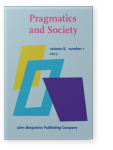Vol. 8:1 (2017) ► pp.85–106
A subtle kind of certainty
Market dynamics and symbolic violence in professional financial planning
Using data collected from 42 semi-structured interviews with professional financial planners and eight recorded meetings between planners and clients, this paper examines two interrelated social phenomena from a Bourdieusian (1977, 1991) perspective. First, it examines how professional financial planners legitimize their expertise by constructing and maintaining a distinction between short-term economic uncertainty on one hand, and the inevitability of long-term economic growth on the other. Second, it conceptualizes those legitimation practices in terms of their symbiotic relationship to broader structural conditions. The analysis concludes by reflecting on the significance of misrecognition as it relates to industry claims about the future.
Article outline
- Introduction
- Professions, expertise, and discourse
- Bourdieu
- Methods
- Constructing short and long-term financial futures
- The doxa meets a heretic
- Discussion
- Conclusion
- Acknowledgments
- Notes
-
References
This article is currently available as a sample article.
